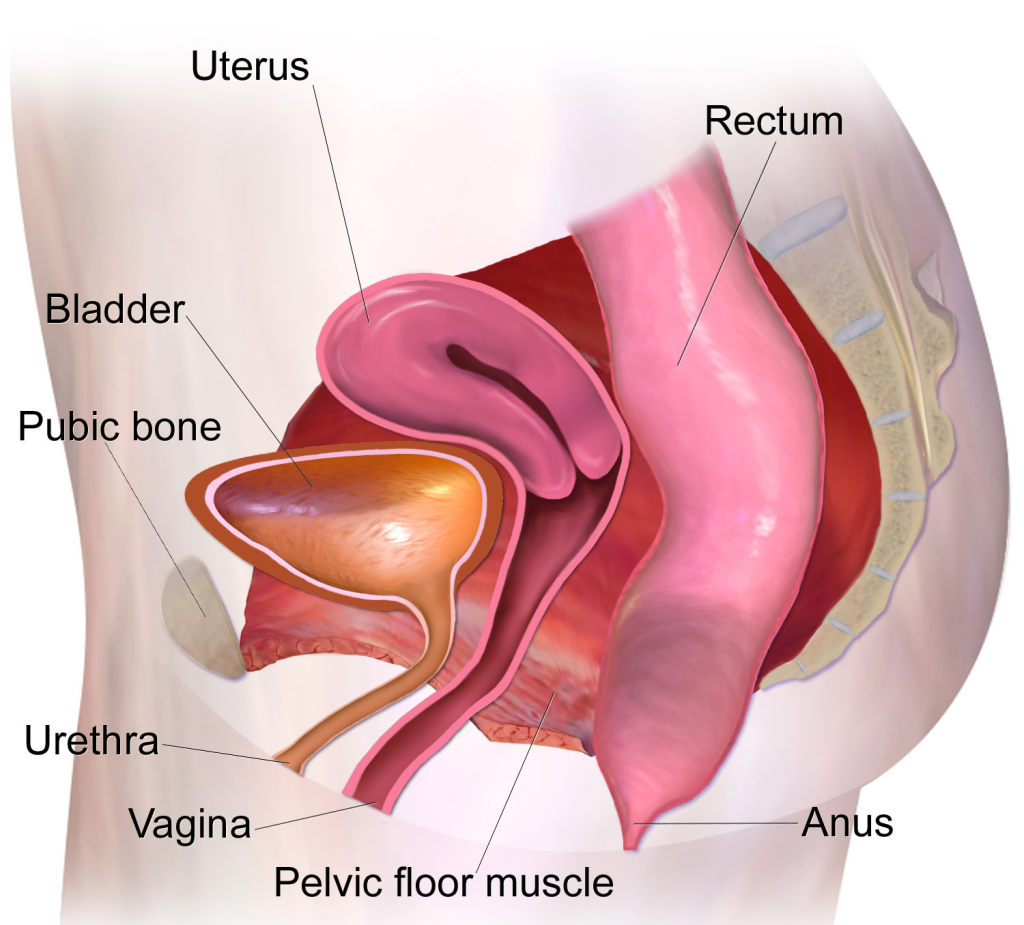Pelvic floor disorders (PFDs) in women are a group of conditions that affect the muscles, ligaments, and connective tissues supporting the pelvic organs. These disorders can lead to problems with bladder control, bowel function, and sexual health. While often associated with aging or childbirth, pelvic floor disorders can affect women at any stage of life. Understanding the causes, symptoms, and available treatments is crucial for early intervention and improved quality of life.

What Are Pelvic Floor Disorders?
The pelvic floor is a group of muscles and connective tissues that support the bladder, uterus, vagina, and rectum. When these structures become weakened or damaged, they may result in various pelvic floor disorders, including:
- Urinary Incontinence: Involuntary leakage of urine, especially during coughing, sneezing, or exercise.
- Pelvic Organ Prolapse: Descent or bulging of pelvic organs into or outside of the vaginal canal.
- Fecal Incontinence: Inability to control bowel movements, leading to accidental stool leakage.
- Pelvic Pain: Chronic discomfort or pressure in the pelvic region.
Causes and Risk Factors
Several factors can contribute to the development of pelvic floor disorders. While some are unavoidable, others can be managed or mitigated through lifestyle choices and medical care.
Common Causes
- Childbirth: Vaginal delivery, especially of large babies or after prolonged labor, can stretch and damage pelvic floor muscles and nerves.
- Aging and Menopause: Decreased estrogen levels after menopause can weaken the tissues supporting the pelvic organs.
- Chronic Pressure: Constipation, chronic coughing, obesity, or heavy lifting can increase pressure on the pelvic floor over time.
- Surgery or Trauma: Pelvic surgeries or injuries can alter muscle and nerve function.
Symptoms to Watch For
Pelvic floor disorders may present gradually or suddenly. Some common symptoms include:
- Sensation of pelvic pressure or fullness
- Urinary urgency, frequency, or leakage
- Difficulty with bowel movements or fecal leakage
- Visible bulge from the vagina (in cases of prolapse)
- Pain during intercourse
If you’re experiencing these symptoms, a pelvic exam and additional testing from a urologist or urogynecologist may be necessary.
Treatment Options for Pelvic Floor Disorders
Treatment depends on the specific condition, its severity, and individual patient factors. Fortunately, a wide range of effective therapies are available.
Conservative Treatments
Non-surgical options are often the first line of treatment, particularly for mild to moderate symptoms.
- Pelvic Floor Physical Therapy: A specialized physical therapist can guide exercises (like Kegels) to strengthen pelvic muscles and improve control.
- Pessary Devices: A small device inserted into the vagina to support pelvic organs and reduce prolapse symptoms.
- Medications: Depending on the condition, medications may be prescribed to manage bladder symptoms or improve bowel function.
Minimally Invasive and Surgical Treatments
When conservative treatments aren’t effective, minimally invasive procedures or surgery may be necessary.
- Urethral Sling Surgery: A sling is placed to support the urethra and prevent urinary incontinence.
- Sacral Neuromodulation: A small device is implanted to regulate nerve signals to the bladder and bowel.
- Pelvic Organ Prolapse Repair: Surgery can restore the normal position of prolapsed organs, either through the vagina or abdomen, sometimes using mesh for added support.
For detailed treatment options, visit the American Urogynecologic Society.
Pelvic Floor Disorders in Women: Conclusion
Pelvic floor disorders are common but treatable conditions that can greatly affect a woman’s daily life and confidence. Whether you’re managing symptoms of urinary incontinence, pelvic organ prolapse, or chronic pelvic pain, effective treatments are available—from physical therapy to advanced surgical options. Early diagnosis and the right care plan are essential.
For comprehensive evaluation and expert treatment, contact Dr. Yaniv Larish at Fifth Avenue Urology. Dr. Larish provides personalized care using the latest techniques to help women restore function and improve quality of life.
FIFTH AVENUE UROLOGY
4 East 76th Street
New York, NY 10021
212-675-3186
